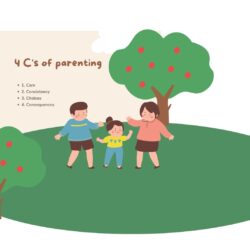Are you a parent who feels constantly pressured to provide the best for your child? Do you find yourself scheduling playdates, extracurricular activities, and educational enrichment programs, leaving little time for relaxation? If so, you may be engaging in intensive parenting.
What is Intensive Parenting?
Intensive parenting is a parenting style characterized by a high level of involvement and a focus on providing children with numerous opportunities for learning and development. While this approach can have benefits, it can also lead to significant stress for both parents and children.
The Pros and Cons of Intensive Parenting
Pros:
- Enhanced cognitive development: Studies have shown that children of intensive parents often exhibit higher IQ scores and better academic performance.
- Strong social skills: Exposure to various activities and social situations can help children develop strong social skills and emotional intelligence.
- Increased self-esteem: Children who feel supported and encouraged by their parents are more likely to have high self-esteem.
Cons:
- Stress and burnout: Intensive parenting can be physically and emotionally draining for parents.
- Reduced family time: Over-scheduling can limit quality family time and create tension within the household.
- Child anxiety and pressure: Children may feel overwhelmed and anxious due to excessive expectations and pressure to succeed.
- Potential for resentment: Children may resent their parents for pushing them too hard or for not allowing them to simply be kids.
Finding a Balance
While intensive parenting can have benefits, it’s important to find a balance that works for your family. Here are some tips:
- Prioritize quality over quantity: Focus on spending quality time with your child rather than simply filling their schedule with activities.
- Set realistic expectations: Don’t push your child to be perfect or to excel in every area.
- Encourage independence: Allow your child to make their own choices and learn from their mistakes.
- Practice self-care: Take time for yourself to relax and recharge.
- Communicate openly with your child: Talk to your child about their feelings and concerns.
Remember, the goal of parenting is to raise happy, healthy, and well-adjusted children. By finding a balance between structure and spontaneity, you can create a positive and supportive environment for your child to thrive.
Additional Tips for Intensive Parents
- Delegate tasks: Try to do only some things yourself. Delegate tasks to other family members or hire help if needed.
- Learn to say no: It’s okay to decline invitations or turn down additional activities.
- Embrace imperfection: Don’t strive for perfection. It’s okay to make mistakes and learn from them.
- Practice gratitude: Focus on the positive aspects of your child’s life rather than dwelling on their shortcomings.
By following these tips, you can reduce the stress of intensive parenting and enjoy a more fulfilling family life.





